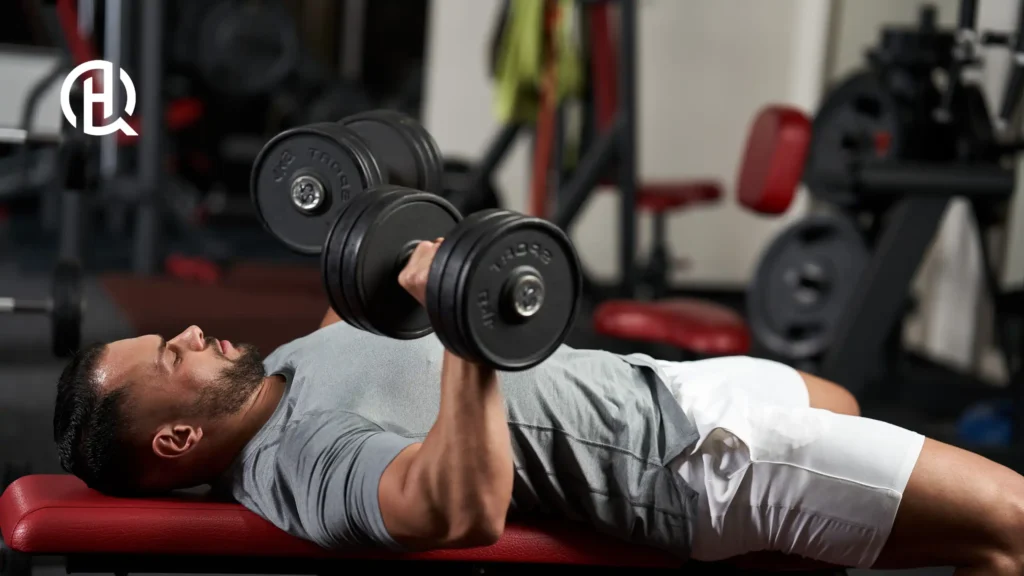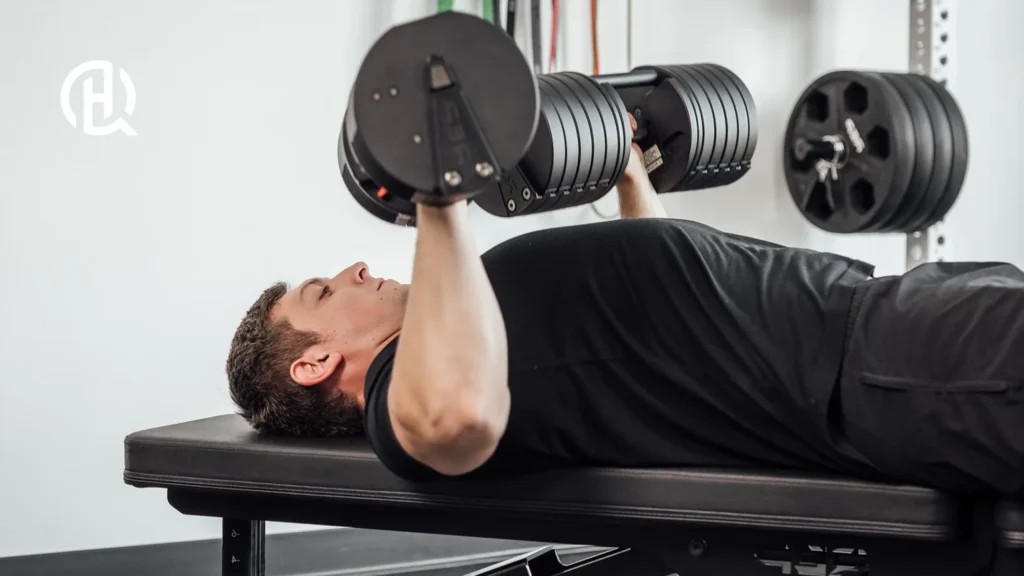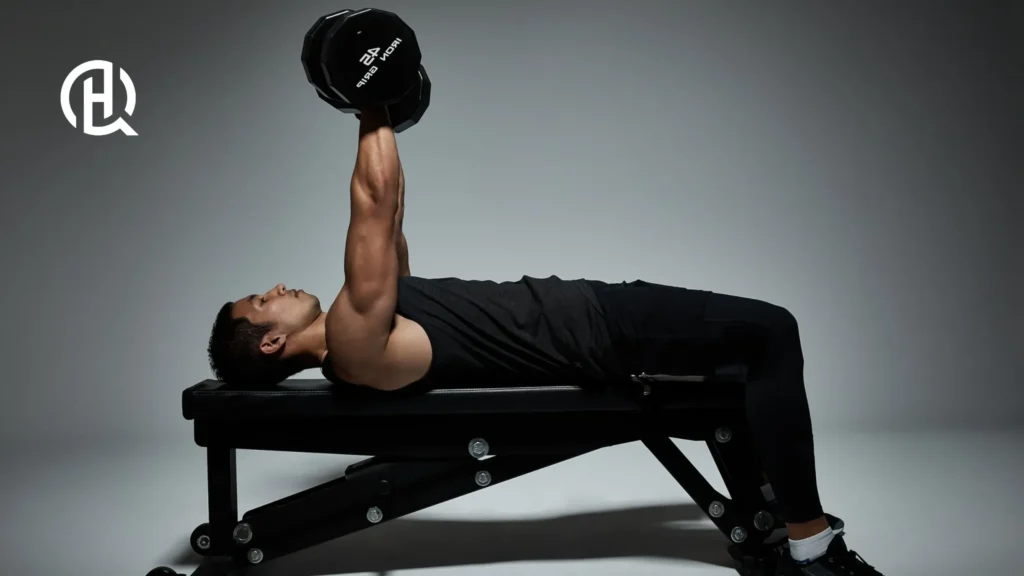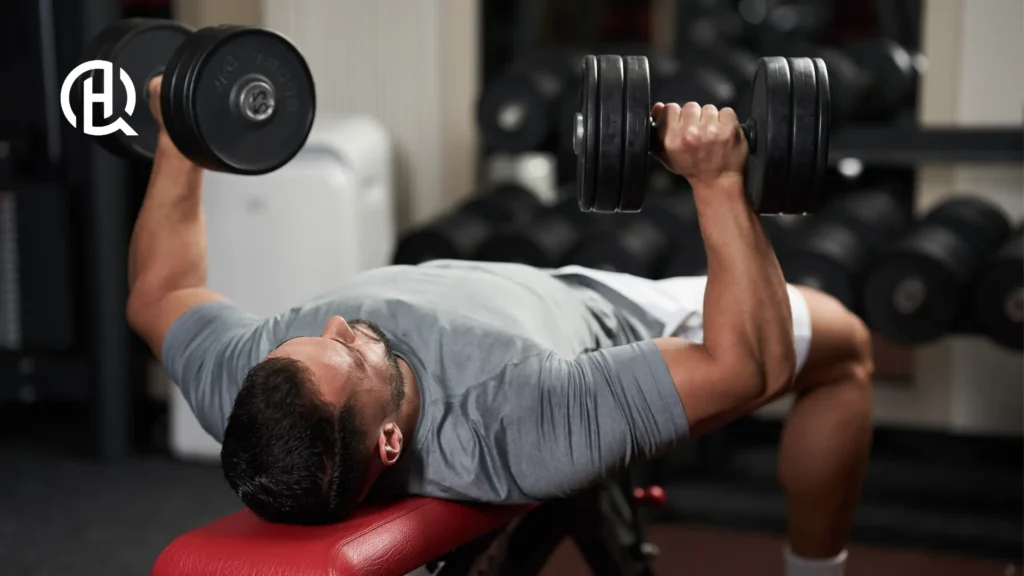

Want to get stronger, leaner, and take your fitness to the next level? Explore our workout programs now!
Positioning, proper movement, and breathing: that’s how you pull off the perfect dumbbell bench press! An essential part of every effective chest workout, the dumbbell bench press is designed to strengthen three main upper-body muscles: the pectorals, the triceps, and the anterior deltoids.
In this short guide, you can learn how to do the dumbbell bench press like a champ in under five minutes. Let’s get started.

A few lighter sets of whatever exercise you are going to do, like a bench press – is good enough. Aim for 2 – 3 sets.
(Study highlights the benefits of eccentric-focused training, News Medical)
All warmed up? In that case, it’s time to look at the three golden rules:
First, find a bench that’s stable and secure, and make sure that it has zero inclination – its flat. Then, lie down on the bench without arching your back too much, keeping both feet securely placed in the floor.
Before raising the dumbbells for the first time, position them at chest level, with the palms of your hands facing forward, and that’s all. Yes, it’s that simple!

For every repitition, we want you to focus on two essential things:
When you lower the dumbbells, your elbows should be at a 45-degree angle relative to your body (for beginners).

For this exercise, the two most common breathing technique is:
Or breathe in at the top of the movement, do the repitition and breath out at the top again.

Fundamentally, the equipment used (dumbbell vs. barbell) is what makes these two exercises different, but that ends up being more significant than it may seem at first. Here’s why:
These two exercises are virtually the same, except one uses zero inclination on the bench, while the other uses a 30 to 45 degree inclination:
Inspired? Achieve your fitness goals with HermQ’s expert workout programs!